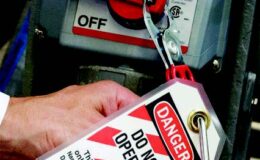By Donna Motley, Vice President of Claims
It is that time of year again! Spring! Even though it is dark and raining outside as I write this, the calendar indicates the first day of Spring was on March 20th this year. While the weather may not seem like Spring has arrived, the school year is coming to an end.
Senior graduation, prom and graduation parties. At this time of year, students eligible to work between the ages of 14 and 17, legally known as a “minor”, may start looking for employment. This can be a win-win situation for both the minor and the prospective employer.
The minor may only be seeking “part-time” work and the employer may only need “part-time” help. Employers in the tooling industry are looking for ways to interest young people to learn manufacturing and maybe a skilled trade. It is not uncommon for minors to work within the fast food or retail industries, however, those positions can involve evenings and weekends. Clerical positions are generally 8 to 5:00. Whatever the position available for a minor, there are certain parameters that must be followed.
A work permit is required unless the minor is exempt from the Youth Employment Standards Act. The prospective employer must provide a statement setting forth the general nature of the occupation in which the employer intends to employ the minor, the hours during which the minor will be employed, the wages to be paid, etc.
Depending on the age of the minor (over or under 16 years of age) there are restrictions on the number of hours they can work in a day and in a week.
Minors cannot work for more than 5 hours continuously without a 30 minute break for a meal and rest period.
Minors cannot work in jobs that are hazardous. A sample of hazardous jobs are: Contact with hazardous substances, chemicals, explosives or radioactive substances; Driving and work as an outside helper (pizza delivery, etc.); Jobs in the logging and sawmill industry; Jobs using woodworking machinery; Brazing, welding, soldering or heat treating for those less than 16 years of age; Work on construction sites, excavation sites, bridges, streets or highways; Slaughtering, butchering and meat cutting; Occupations involving power driven equipment, tools, saws, or machinery (bakery machines, paper product machines, metal-forming, punching and shearing machines). Special approval for some restricted work for 16 & 17 year olds may be authorized; employers must apply for special approval to the Wage & Hour Division.
A minor may not be employed unless the employer or another employee 18 years of age or older provides supervision! Supervision means being on the premises to direct and control the work of minors and to assist in case of an emergency.
No matter how easy or simple you perceive a job to be, please make sure the minor goes through a training process. Explain the possible hazards that could arise. Explain safety protocol and the consequences of not following safety protocol. Even if the minor advises “they know” how to perform the job, provide training and detailed instructions. It may seem somewhat over cautious, but violations of the Youth Employment Standards Act, as far as the Workers’ Compensation Act is concerned, constitutes “illegal employment” and should an injury occur, the minor would be entitled to double compensation.
Per the Youth Employment Standards Act, a person who employs a minor in violation of the (Youth) Act is guilty of a Misdemeanor punishable by imprisonment for not more than 1 year, or a fine of not more than $500.00, or both.
The goal should be for the minor to establish work experience, maybe learn a new skill, be of benefit to the employer, earn some money, expand their horizons, prepare them for the future and have a safe enjoyable summer! Then everyone wins!






